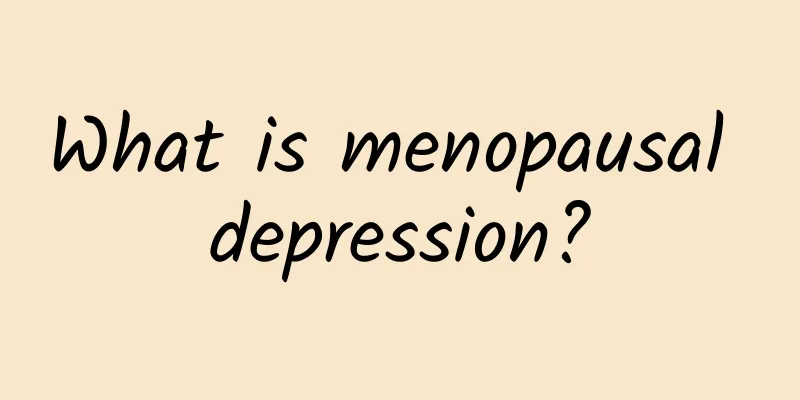What is menopausal depression?

|
Medically, the period between 45 and 55 years old is called menopause. During this period, people undergo great physiological changes, which often lead to a series of emotional changes and physical illnesses. So, what is menopausal depression? Let us introduce it to you in detail. Menopausal depression generally starts slowly, develops gradually, and has a long course. It often manifests as neurasthenia symptoms, such as insomnia, fatigue, dizziness, headache, irritability and other physical discomforts. Patients are often depressed, unhappy, anxious, overly worried about accidents, recalling the past with a pessimistic and negative mood, comparing the present, and worrying about the future. Many patients also have hypochondria and nihilistic delusions, that is, they are overly concerned about their own bodies, are very sensitive to some minor discomforts, and believe that their organs have rotted, their bones are broken, their blood is exhausted, they have a terminal illness, and there is no cure, so they are afraid and anxious. Some patients also think that they are left with only a tangible body, and feel that everything around them has become unreal, illusory, and unpredictable. So, what is menopausal depression? Menopausal depression is a common mental disorder that occurs during menopause. Patients with menopausal depression often have certain physical or mental factors as inducements, such as more, significant events, and physical diseases. Patients often experience physiological and psychological changes. Changes in physiological functions are mainly manifested by clinical symptoms of the digestive system, cardiovascular system, and autonomic nervous system: loss of appetite, upper abdominal discomfort, dry mouth, constipation, diarrhea, palpitations, changes in blood pressure, faster or slower pulse, chest tightness, numbness of the limbs, chills, fever, loss of libido, menstrual changes, sleep disorders, dizziness, fatigue, etc. Physiological changes often appear before mental symptoms, often worsen as the disease progresses, and physical symptoms disappear earlier than mental symptoms after treatment. After reading the above content, do you understand what menopausal depression is? I would like to remind everyone that if you are in the menopausal age stage, feel low and depressed, and are nervous and anxious all day long, you may be suffering from menopausal depression. At this time, you must go to the hospital for diagnosis and treatment. Menopause: http://www..com.cn/fuke/gnq/ |
<<: Introduction to the symptoms of menopausal syndrome
>>: Experts explain what is menopausal functional uterine bleeding
Recommend
How to treat abortion syndrome? Introduction to the treatment methods of abortion syndrome
Speaking of abortion, many female friends think i...
How much does minimally invasive surgery for pelvic inflammatory disease cost?
How much does minimally invasive surgery for pelv...
Menstruation delayed by one month
Menstruation delayed by one month A one-month del...
Is delayed menstruation related to thyroid disease?
Is delayed menstruation related to thyroid diseas...
Effects of pelvic inflammatory disease on the fetus
Many women are concerned about whether the harm o...
Get sexy collarbones! Do these 5 tricks to get butterfly sleeves
I’m not fat, but the lines of my collarbone and s...
Eating only hamburgers, salads and lettuce still does not provide enough dietary fiber
Many people are accustomed to Westernized diets a...
Women should pay attention to the prevention of dysmenorrhea in their lives
Dysmenorrhea is a common female disease. If dysme...
Why is there brown discharge after abortion? Actively treat according to the 4 causes
Brown discharge after abortion may be caused by e...
What anti-inflammatory drugs should I take to cure pelvic effusion quickly?
Women still lack the attention to gynecological d...
The reason why women are so prone to uterine fibroids
The number of women suffering from uterine fibroi...
What are the harmful manifestations of pelvic inflammatory disease?
The high incidence of pelvic inflammatory disease...
Explain some common symptoms of vaginitis
The symptoms of early vaginitis should be a commo...
How to treat endometriosis?
Patients with endometriosis should pay attention ...
How to relieve dysmenorrhea in women?
Dysmenorrhea is a common disease among women. Man...









